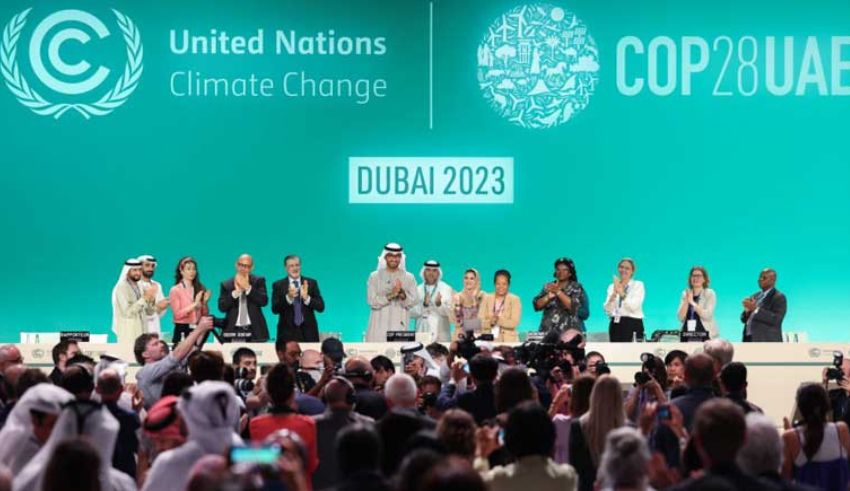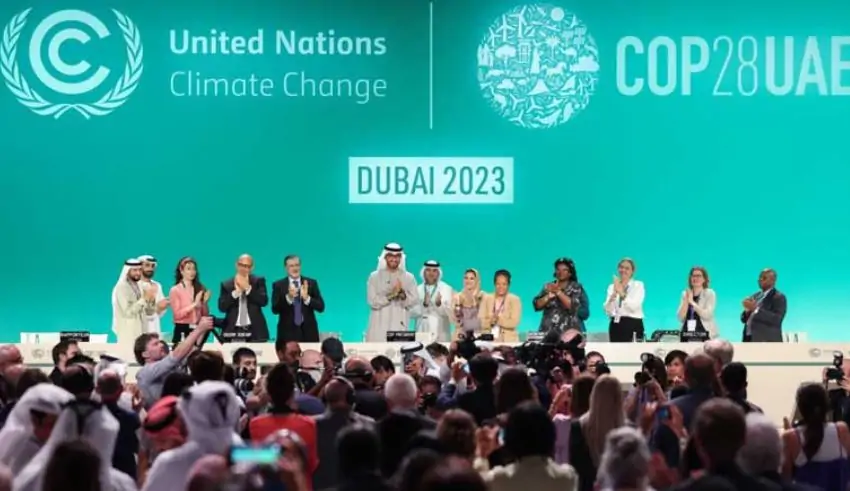

(C) Modern Diplomacy
The United Arab Emirates (UAE) has emerged as a diplomatic powerhouse in the Middle East and beyond, thanks to its visionary and pragmatic leadership, its strategic and economic interests, and its role as a bridge builder between different countries and cultures.
The UAE’s most remarkable diplomatic achievement was the signing of the Abraham Accords with Israel in September 2020, which normalized relations between the two former adversaries and opened new avenues for cooperation and development.
The UAE’s decision to normalize relations with Israel was driven by a combination of motivations and objectives, such as:
The UAE recognized that Israel is a key player and partner in the region, and that establishing ties with it would enhance its security and influence. The UAE also hoped that normalization would create a more conducive environment for resolving the Israeli-Palestinian conflict, and for countering the common threats posed by Iran and its proxies, such as Hezbollah and the Houthis.
The UAE saw the potential of tapping into Israel’s advanced and innovative economy, and of creating synergies and opportunities for trade, investment, tourism, and innovation. The UAE also aimed to leverage Israel’s expertise and experience in sectors such as agriculture, water, energy, health, and cybersecurity, and to collaborate on joint projects and initiatives that would benefit both countries and the region.
The UAE wanted to showcase its leadership and vision, and to demonstrate its commitment to peace and dialogue, by taking a bold and historic step towards normalization with Israel. The UAE also sought to increase its international recognition and respect, and to position itself as a model and mediator for other Arab and Muslim countries that might follow its example and pursue normalization with Israel.
The UAE’s normalization with Israel has yielded several achievements and challenges, such as:
The UAE’s normalization with Israel has opened a new chapter in the history and future of the Middle East, and has created new prospects and recommendations for both countries and the region, such as:
The UAE’s diplomatic success in forging historic ties with Israel and beyond is a remarkable and commendable achievement, that reflects its vision and pragmatism, its interests and values, and its role as a bridge builder. The UAE’s normalization with Israel has not only transformed the bilateral relations between the two countries, but also the regional and international dynamics and prospects. The UAE’s normalization with Israel is a gift and a challenge, that requires constant and collective efforts and support, to ensure its sustainability and success.
BLACKPINK is planning their fourth concert tour across the globe and their brand-new album for release in 2025. Member Lisa…
The 2024-2025 BOC Life Hong Kong Premier League is a different league which is structured with triple-round robin competition every…
On May 5th the 2025 Met Gala will glitter the world through its return to The Metropolitan Museum of Art…
‘Children’s Day’ is celebrated annually on 5 May in South Korea, on this day across the nation many campaigns, creative…
May is one of the crucial financial months in a year, if you have any important transactions or any official…
If you happen to breathe K-drama, then your 'May 2025' will most likely be well-rendered into a month! Romantic sagas,…
This website uses cookies.
Read More